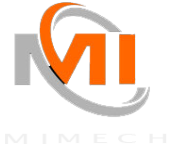Business
Why Does Every Small Coffee Shop Need a Point-of-Sales System?

Each sale tells a story in the bustling world of independent coffee shops. The aroma of freshly ground beans fills the air. But, the shop’s success lies in quick and smooth transactions. They blend the experience with business savvy.
That’s why the rise of point-of-sale (POS) systems is a critical milestone in an era of tablets and contactless payments. It’s for coffee lovers turned entrepreneurs.
Here’s why every small coffee shop needs to consider adopting a POS system seriously – and how it can revolutionize your daily grind.
Streamlining Operations
Operating a coffee shop is complex, with numerous moving parts that must align seamlessly for the business to run smoothly. A POS system streamlines operations. It makes tasks such as taking orders, tracking inventory, and managing staff schedules much more efficient.
These processes are integrated into one system. It is centralized.
Coffee shop owners can focus on other parts of their business without worrying about logistics. The systems also provide detailed sales reports and analytics. They give owners valuable insights into their business and customer preferences.
Enhancing Customer Experience
In a world where convenience is vital, POS systems offer customers a hassle-free experience. It can accept many payment types.
It also keeps track of loyalty programs. This makes transactions quick and easy for customers. Additionally, POS systems can generate personalized receipts, making customers feel valued and appreciated.
Moreover, the customer service aspect of a coffee shop can also be improved with the help of point-of-sales systems. By integrating customer databases, employees can easily access information about regular customers. This allows them to provide personalized and efficient service.
Increasing Efficiency and Accuracy
In a fast-paced environment like a small coffee shop, every second counts. A POS system allows employees to take orders quickly and accurately. It reduces wait times and raises customer satisfaction.
Inventory tracking has an added benefit. It helps shop owners avoid running out of popular items. This allows them to avoid losing sales.
If you want to increase efficiency, consider opting for Trinity Payments. This system is state-of-the-art. It offers real-time inventory tracking, customizable menus, and advanced sales reports. Using this can take your coffee shop’s operations to the next level.
Staying Ahead of the Competition
As more and more small businesses adopt POS systems, it’s becoming a necessity rather than a luxury. A small coffee shop can keep up with the competition by investing in a POS system and even gain a competitive edge.
POS systems have features like online ordering and contactless payments. They cater to customers’ changing needs and preferences.
Also, they can use advanced analytics and sales reporting. They can make data-driven decisions that give them an edge over their competitors. This allows coffee shops to adapt to trends and constantly improve their offerings, keeping them ahead.
Enhancing Brand Image and Customer Loyalty
A cutting-edge POS system optimizes operational efficiency and significantly improves a coffee shop’s brand image. By giving customers a smooth experience, a coffee shop can build a good reputation. This reputation helps keep customers.
In addition, POS systems also allow for the implementation of reward programs and discounts, encouraging repeat business and creating a loyal customer base.
Enhancing the Small Coffee Shop Process
A small coffee shop needs to stay ahead of the game in a world where technology is constantly evolving. These businesses can improve their brand image and customer loyalty by adopting a POS system. With the right POS system, any small coffee shop can take its business to new heights of success.
Need more ideas? Check out our other helpful articles on our website.
Business
Lead Generation: How Much Does it Cost?

Lead generation is the lifeblood of any growing business. Everything is geared towards drawing in prospects, and you need them for your business to grow. Yet the costs behind lead generation can be a bit of a mystery. Usually, the prices are driven by some factors, so it can be pretty expensive.
How Do You Determine the Cost of Lead Generation?
Before you begin finding leads, you need to think of it’s cost. This will help you in your decision. Here are some of the things that can influence how much leads cost:
Industry and Target Audience
Lead generation cost is heavily dependent on the particular industry and who you are targeting. For example, in highly competitive finance or technology markets, leads will be more expensive. The reason is that they are in high demand, and the market is saturated. On the other hand, lead generation costs may be cheaper in less competitive markets. So, it’s important you know your industry and how accessible the target audience is to help you estimate the costs of generating leads.
Lead Generation Methods
The methods that you use to acquire leads will, in large part, dictate the amount. To be specific, buying a lead list can cost anywhere from $500 to $2,000 per 1,000 contacts, which is expensive. However, if you invest in some tools, it can help you save money. There are sales tools that can cut time and are effective in generating leads.
Technology and Tools
As mentioned earlier, there are some advanced technologies and tools that may have an impact on the cost of your lead generation. Aside from the monetary cost of the tools, you will need to make sure they are up-to-date. Also, it will require training and integration with other resources for it to actually benefit you. So, it is important to weigh the benefits over the cost. The goal should be how it will help achieve your lead-generating goals.
Final Thoughts
In summary, there is really no such thing as a lead generation cost. It will vary on the industry and the tools you’re using. So, your focus should be on what will work best to meet your business objectives. Also, consider how you can create a cost-efficient lead generation plan with the highest returns.
Business
7 Tips to Reduce the Environmental Impact of Product Deliveries

With the rise of e-commerce and fast deliveries, the environmental impact of logistics has become a major concern. Every day, thousands of trucks, vans, and scooters take to the roads, producing CO₂ emissions, contributing to urban congestion, and generating significant amounts of waste, particularly through packaging.
But here’s the good news: solutions exist to mitigate this impact! By adopting more sustainable practices, businesses and consumers can help reduce the carbon footprint of deliveries while meeting growing demand.
In this article, discover 7 practical tips to make product delivery more environmentally friendly, and learn how these changes can make a real difference for our planet.
I. Why Reducing the Environmental Impact of Delivery is Crucial
The Environmental Impact of Deliveries
With the growth of online shopping, product deliveries have significant consequences for the environment. Key impacts include:
- CO₂ Emissions: Vehicles used for transport, often running on fossil fuels, contribute significantly to global warming.
- Urban Congestion: In cities, delivery trucks and vans increase traffic, leading to more pollution and noise.
- Packaging Waste: Many deliveries come with excessive cardboard, plastic, or filler materials that end up as waste.
Key Figures Highlighting the Issue
- Deliveries account for nearly 30% of greenhouse gas emissions from road transport.
- In France, 25% of vehicles in major cities are delivery vehicles, increasing local pollution and noise.
- The production and disposal of delivery-related packaging generate tons of non-recycled waste every year.
The Benefits of a Sustainable Approach
Adopting responsible logistics practices provides tangible benefits:
- Carbon Footprint Reduction: Using eco-friendly transport or optimizing routes helps limit greenhouse gas emissions.
- Customer Loyalty: More and more consumers prefer to support environmentally conscious businesses.
- Regulatory Compliance: Reducing logistical impact ensures adherence to future environmental standards and avoids potential penalties.
Reducing the environmental impact of deliveries is not just an ethical question; it’s a necessity for building a more sustainable and resilient logistics system. Let’s dive into the 7 practical tips for effective action.
II. 7 Practical Tips to Limit the Environmental Impact of Deliveries
1. Choose Eco-Friendly Transport Modes
Conventional vehicles, such as diesel or gas trucks and vans, are among the top contributors to CO₂ emissions from delivery.
Use electric or hybrid vehicles for urban deliveries. For shorter distances, cargo bikes are an excellent, silent, and non-polluting alternative.
2. Optimize Routes and Consolidate Shipments
Poorly planned routes increase mileage, costs, and emissions.
Invest in planning software to group orders and optimize routes. Additionally, consolidate deliveries by partnering with other businesses serving similar areas.
3. Promote Pickup Points
Individual deliveries increase fuel consumption and unnecessary trips.
Group packages at pickup points or automated lockers, reducing trips and allowing customers to retrieve their orders conveniently.
4. Minimize Excess Packaging
Each order often comes with excessive packaging, contributing to unnecessary waste.
Opt for biodegradable, reusable, or minimalist packaging. Eliminate redundant layers, such as oversized boxes or unnecessary fillers.
5. Offer Deferred Delivery Options
Express deliveries require quick and often inefficient routes, increasing environmental impact.
Provide deferred delivery options that allow grouping multiple orders and optimizing routes.
6. Educate Your Customers
Consumers are not always aware of the environmental impact of their delivery choices.
Share clear information about the ecological impact of delivery options and encourage sustainable alternatives like pickup points or green delivery options.
7. Measure and Offset Your Carbon Footprint
Regular analysis of your activities’ impact identifies areas for improvement.
Track CO₂ emissions and participate in carbon offset programs, such as reforestation or sustainable project funding. For example, using a Dusseldorfer 600×800 pallet in pooling systems can enhance efficiency and sustainability.
By adopting these practices, you reduce the environmental impact of your deliveries while strengthening your eco-friendly image with customers. Let’s now explore the long-term benefits of a responsible logistics approach.
III. Towards Sustainable Logistics: The Benefits of a Responsible Approach
1. Reduced Environmental Impact
Adopting sustainable delivery practices helps reduce CO₂ emissions and waste generated by packaging. This directly contributes to combating climate change and conserving natural resources.
For example, a company using cargo bikes for city-center deliveries can lower greenhouse gas emissions by 30 to 50%.
2. Increased Customer Loyalty
Consumers are increasingly sensitive to companies’ environmental commitments. Offering eco-friendly delivery options enhances your brand image and attracts customers who care about sustainability.
According to a study, 75% of customers prefer buying from eco-conscious companies, even at a slightly higher cost.
3. Anticipation of Future Regulations
Environmental regulations are becoming stricter, particularly in the transport sector. Adopting eco-friendly practices now ensures compliance with future standards and avoids penalties or restrictions.
It’s also a great way to demonstrate your commitment to responsibility to your customers and partners!
4. Long-Term Cost Savings
While some measures require initial investments (electric vehicles, planning software), they reduce logistical costs over time through route optimization and resource sharing.
Reducing mileage and grouping deliveries at pickup points lowers fuel consumption.
5. Contribution to a Circular Economy
Transitioning to sustainable logistics promotes practices such as recycling packaging or pallet pooling, aligning with circular economy principles. These initiatives reduce waste and maximize resource use.
For example, reusable pallets, like the Dusseldorfer 600×800 pallet, allow multiple rotations, reducing waste and enhancing efficiency.
Conclusion
With the rise of product deliveries, reducing their environmental impact is essential, not only to protect our planet but also to meet the growing expectations of consumers. By embracing sustainable practices like eco-friendly transport, route optimization, or packaging reduction, you can align logistical efficiency with environmental responsibility.
These efforts don’t just benefit the environment: they boost brand image, foster customer loyalty, and ensure future regulatory compliance. By committing to sustainability, you help build a more virtuous logistics model while securing your business’s longevity.
Now it’s your turn: every initiative counts in transforming the delivery world into a more planet-friendly system!
Business
Scaling Your SEO: Outsourcing for Growth

Key Takeaways
- Outsourcing SEO can significantly enhance your online presence.
- It’s essential to choose the right partner for SEO outsourcing.
- Measuring success involves key performance metrics like organic traffic.
Table of Contents
- Understanding Outsourcing SEO
- Benefits of Outsourcing SEO
- Choosing the Right Partner
- Key Strategies in Outsourcing
- Measuring Success in SEO Outsourcing
- Common Missteps and Solutions
- Future Trends in SEO Outsourcing
- Final Thoughts on Outsourcing
Understanding Outsourcing SEO
Outsourcing SEO has become a strategic choice for businesses aiming to boost their digital footprint without straining internal teams. This strategy involves hiring specialized third-party firms to manage search engine optimization tasks, including content creation, keyword analysis, and backlink development. Such comprehensive services are essential for businesses striving to maintain an edge in an ever-competitive digital landscape. Leveraging outsource link building services is smart for organizations lacking in-house SEO expertise but still aiming to achieve high search engine rankings and organically increase visibility.
Benefits of Outsourcing SEO
Opting for outsourced SEO solutions brings multiple advantages, such as cost savings and access to expert insights that might need to be more readily available within your organization. By outsourcing, companies can allocate resources more efficiently while gaining the competitive advantage of expert-led SEO initiatives. Furthermore, outsourcing provides access to up-to-date advanced SEO strategies, which may include the latest algorithm adjustments and innovative optimization techniques, ensuring that businesses stay ahead of the curve. It allows companies to focus on core operations while enjoying enhanced online performance.
Choosing the Right Partner
The success of SEO outsourcing largely depends on selecting the right partner. This pivotal decision requires evaluating potential collaborators based on their track record, understanding of your industry, and ethical practices. A trustworthy partner will guide you through technical challenges and align their strategies with your business goals. As SEO approaches require customization for different sectors, opting for a partner with industry-specific experience can be particularly beneficial. Businesses can forge partnerships that enhance online visibility and drive growth by conducting thorough research and seeking client testimonials.
Key Considerations
- Prior experience in your business sector
- Transparency and adherence to ethical SEO practices
- Client testimonials and track record of success
Key Strategies in Outsourcing
A successful outsourcing strategy begins with defining clear objectives and aligning them with your SEO goals. This foundational step ensures that in-house teams and outsourcing partners are on the same page. Frequent check-ins and updates keep the project aligned and adaptive to business priorities or search engine algorithm changes. A robust SEO strategy also incorporates diverse techniques such as link building, content marketing, and technical auditing. These integrated actions create a comprehensive, resilient approach to SEO that considers every aspect of a website’s performance and presence.
Steps for Success
- Define clear, achievable goals suitable for your business scale.
- Maintain consistent communication channels with your outsourcing partner.
- Adopt a mix of white-hat SEO techniques.
Measuring Success in SEO Outsourcing
Tracking the effectiveness of your outsourced SEO initiatives requires a strong focus on specific performance metrics. Analyzing organic traffic, search engine rankings, and conversion ratesprovides insight into the strategy’s effectiveness. Regularly reviewing these metrics evaluates the current performance and helps fine-tune the SEO strategy as needed. Recognizing improvements in page performance and user engagement is crucial to ensuring that your SEO efforts translate into tangible business growth. According to Forbes, these key performance indicators are indispensable for informed decision-making in digital marketing.
Common Missteps and Solutions
Despite best efforts, common pitfalls such as misjudging partners or overlooking analytics can hinder the success of outsourcing SEO tasks. Avoiding these issues involves conducting thorough partner assessments, maintaining regular performance reviews, and adjusting strategies as necessary. It’s essential to stay informed about the latest trends and algorithm changes to keep your SEO approach effective and compliant. Regular audits will help identify and address any disparities between expected and actual outcomes, ensuring your investment in outsourcing continues to yield positive results.
Future Trends in SEO Outsourcing
The landscape of SEO outsourcing is rapidly evolving with new technologies and methodologies. Emerging trends such as AI-driven analytics and more personalized SEO strategies promise to play a significant role in future SEO practices. Staying ahead means embracing these innovations and integrating them into existing workflows. Moreover, companies must adapt to changes in consumer behavior and search engine algorithms to maintain relevance and competitiveness. The future of SEO outsourcing lies in leveraging technology to deliver highly customized and effective SEO solutions.
Final Thoughts on Outsourcing
Outsourcing SEO can provide a significant competitive advantage, helping businesses navigate an evolving digital landscape efficiently. Companies can ensure their SEO efforts are fruitful by strategically selecting partners, clearly defining objectives, and continuously monitoring performance. With the right approach, outsourcing becomes a powerful tool that enhances a company’s online presence and supports sustainable business growth.
-

 News1 year ago
News1 year agoVaping: Beyond the Hype – Unveiling the Risks and Realities
-

 Entertainment2 years ago
Entertainment2 years agoUnleashing Geekdom: Exploring the Wonders of Geekzilla Radio
-

 Fashion1 year ago
Fashion1 year agoWhat is λιβαισ? A Complete Guide
-

 News2 years ago
News2 years agoThe Travel Resorts of America lawsuit (Legal Controversy)
-

 Games2 years ago
Games2 years agoHow To Play Baduk game: Unveiling the Art of Strategic Brilliance
-

 News2 years ago
News2 years agoAbraham Quiros Villalba: Unveiling the Journey of a Visionary
-

 Life style1 year ago
Life style1 year agoDemystifying λυσασ: Unveiling the Enigmatic Concept
-

 Tech1 year ago
Tech1 year agoUnlocking the Secrets of 02045996875: UK’s Unique
